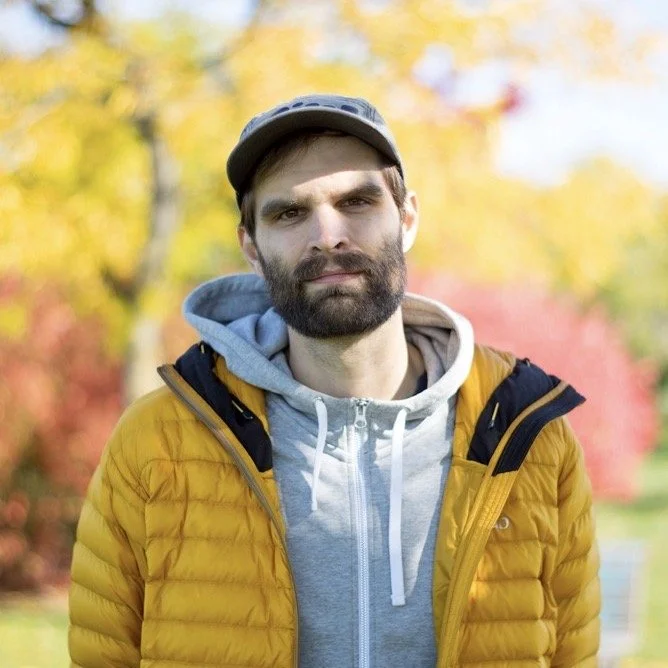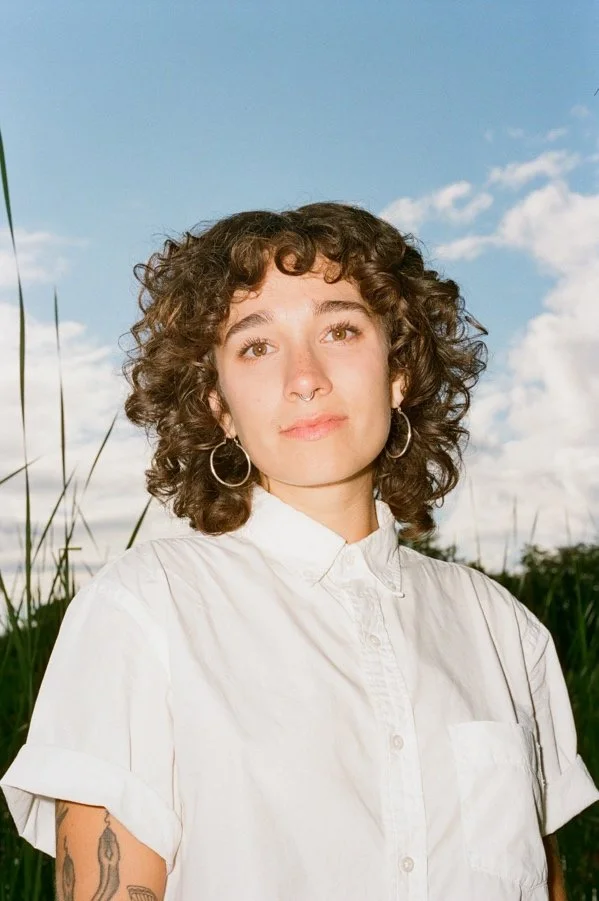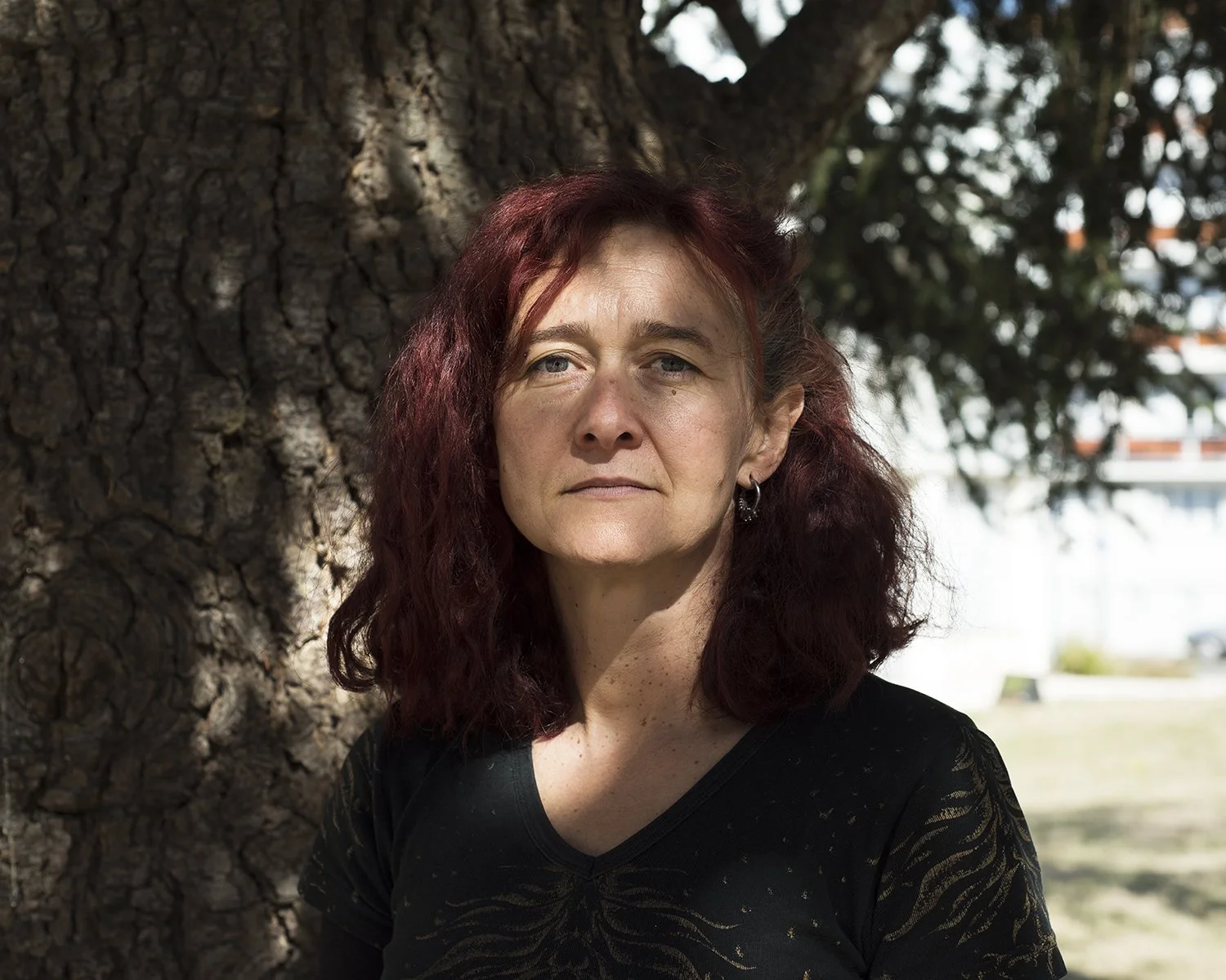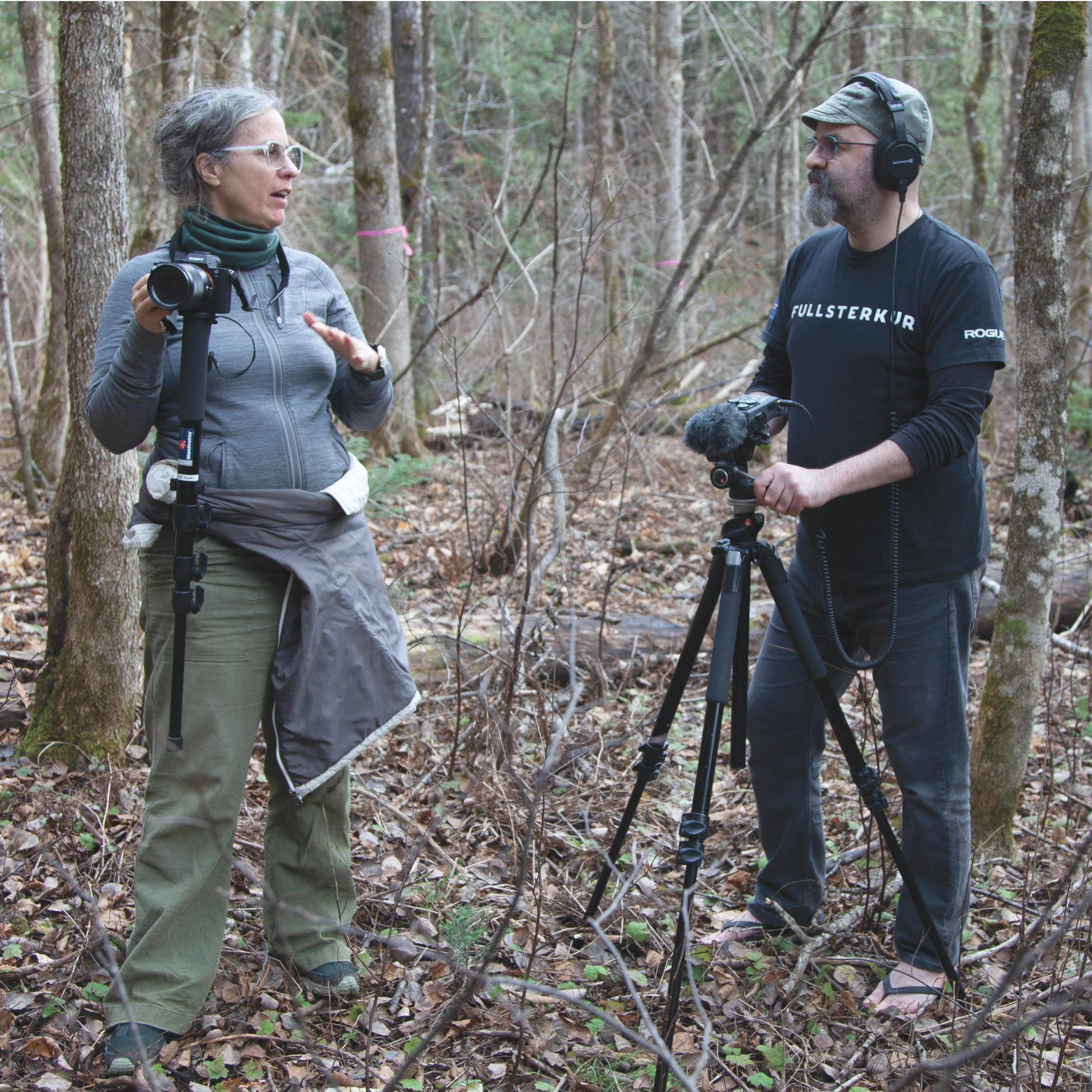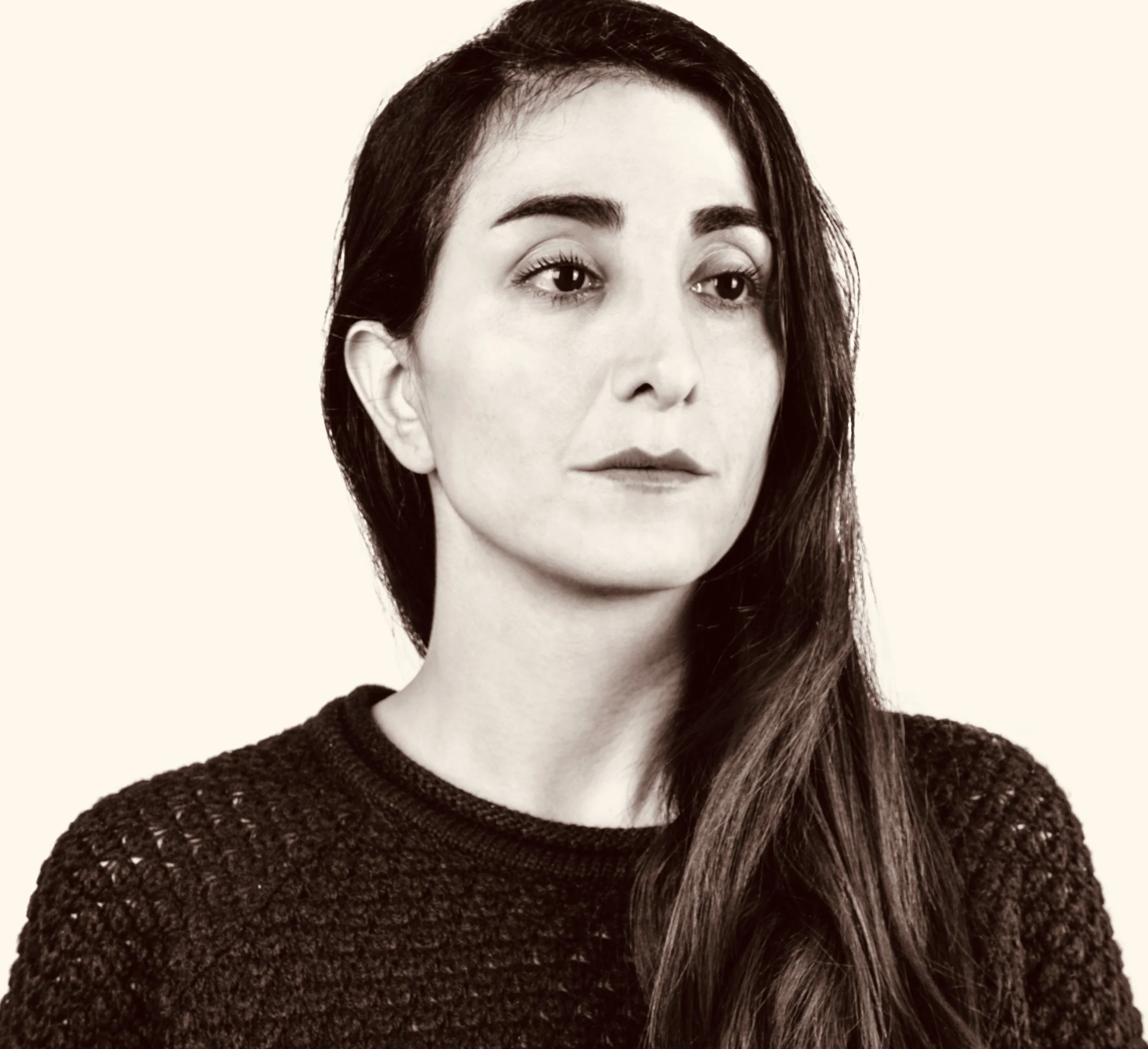Prize for Creation in Visual Arts
The Grantham Foundation’s Prize for Creation in Visual Arts is given annually to an artist. The prize includes a $10,000 grant and a one-month residency at the Foundation. The winner is selected by a jury of experts in the worlds of art and the environment.
2026 Winner — Serge-Olivier Rondeau
Serge-Olivier Rondeau is a filmmaker whose practice crosses media arts, experimental ethnography and social science research. His films and installations explore the relationships between humans and non-humans, in particular animals, plants and technology. He has presented his work in numerous exhibitions and festivals in Canada and abroad. He co-directed the feature-length documentary Ressources (2021), which focuses as much on the environment as on the living conditions of humans and animals linked by the slaughter and meat-processing chain. His second feature, Les héritiers (2025), gives voice to a ring-billed gulls colony and explores new ways of living and dying in our landscapes haunted by mass consumption and pollution.
As part of his residency at the Foundation, he will be working on a project entitled La promesse, which traces the plastic production chain to reveal the emergence of new forms of life. Rondeau will explore the impact of these mutations on the way we imagine our environmental futures.
To learn more about the artistic practice of Serge-Olivier Rondeau: https://sorondeau.work/
Photo credit: Serge-Olivier Rondeau
2025 Winner — seth cardinal dodginghorse
seth cardinal dodginghorse is a multidisciplinary artist, Prairie Chicken Dancer, experimental musician and cultural researcher. They grew up eating dirt and exploring the forest on their family’s ancestral land on the Tsuut’ina Nation. In 2014 their family was forcibly removed from their homes and land for the construction of the Southwest Calgary Ring Road. This life changing event has been the focus of their creative work. seth currently records and releases music as lawrence teeth, they are also a part of the Sobey Art Award nominated collective tīná gúyáńí (Deer Road) with their mother Glenna Cardinal.
During their residency they will research and create a new site-specific sound composition/performance that explores the question “what does the land have to say?”. This work will be directly inspired by the land and environment in which the Foundation is located. They will perform sound to the land everyday, both indoors and outdoors using their guitar, voice, and gathered field recordings while in residence. In their traditional cultures they have everyday practices that involve them connecting with the land they are on.
To learn more about the artistic practice of seth cardinal dodginghorse: https://www.sethcardinaldodginghorse.com/
Photo credit: darin gregson
2024 Winner — naakita f.k.
naakita f.k. is a multidisciplinary artist living and working in Tio'Tia:Ke/Mooniyang/Montreal. They use their installations as a means to listen, translate, and tell stories related to changing landscapes, abstract forms of inheritance and legacy, and the pliability of memory. Their current body of research uses hauntology to explore the impacts of extractive industry and the colonial project on built and natural environments, while imagining possible futures contained in a haunted place. The project developed at the Foundation will explore local geologies. Focusing on the impacts of the region's mining operations, this work tells a story about the systems of power that this country as it is known today was built from. It asks what pasts, presents, and possible futures are held within rocks’ layers? How can place be learned in a different way when we are, at all times, surrounded by histories and futures? In the process, it offers reminders that responsibility doesn’t stop at what we can touch, what we have lived, or what we will live to see. naakita f.k.’s research will lead to the conception of "portraits" depicting the mines near Drummondville. These will take a variety of forms, including audio landscapes, videos and virtual reality compositions.
To learn more about the artistic practice of naakita f.k.:
https://naakitafk.com/selected-works
Photo credit : Hamza Abouelouafaa
2023 Winner — Karine Bonneval
French artist Karine Bonneval has exhibited her work in France, Germany, USA, Argentina, and Sri Lanka. The recipient of many grants and international residencies, she has collaborated in particular with the Soil & Crop Sciences and Bioacoustics departments of Cornell University, USA.
The work that she will carry out at the Grantham Foundation will seek to answer several questions related to soil ecology. What is happening beneath our feet? What does soil tell us about our relationship to the earth? How can we rebuild ties with this complete universe about which we know very little and which escapes our perception? Using the tools of bioacoustics and chromatography, a technique similar to photographic processing, Bonneval intends to paint a visual and sonic picture of the land of the Grantham Foundation and its surroundings.
To learn more about Karine Bonneval and her artistic practice: https://www.karinebonneval.com/
Photo credit: Eva Avril
2022 Winners — Gisèle Trudel and Stéphane Claude
Gisèle Trudel is an artist, professor at the Université du Québec à Montréal’s École des arts visuels et médiatiques and holder of the MÉDIANE Canada Research Chair in Arts, Ecotechnologies of Practice and Climate Change. Stéphane Claude is a sound engineer, composer and researcher in charge of the audio sector at the OBORO artist-run centre.
Two main questions underlie their approach and the work they will present at the Foundation. How can research-creation give rise to collaborative endeavours between the arts, sciences and communities so as to establish an ecotechnology of practice emerging in a context of climate change? And how can scientific soil and forest realities be experienced through site-specific immersive art installations?
To learn more about Ælab: aelab.com
To learn more about the MÉDIANE Chair: https://mediane.uqam.ca
Ælab (Gisèle Trudel and Stéphane Claude) au terrain de recherche de SmartForests, Sainte-Émilie-de-l’Énergie, Québec, November 2020. Photo : Zoé Fauvel.
2021 Winner — Anahita Norouzi
Anahita Norouzi is an Iranian-Canadian multidisciplinary artist based in Montreal. She holds a master’s degree in visual arts from Concordia University. Her work investigates the condition of displacement in relation to notions such as statelessness, in-betweenness and hybridity. Her artistic methodology relies on arts-based research, integrating her studio practice into her research process, giving equal weight to both the visual and the theoretical. Her work includes photography, video, sculpture, installation, text and archival records.
For the past two years, in collaboration with the Research Centre on Biodiversity of the Université de Montreal, Anahita Norouzi has been developing a research project on the ecological, cultural and social dimensions of migration issues from the perspective of non-native plants that have emerged in Quebec in the continuation of migratory flows of populations.
2020 Winner — Andreas Rutkauskas
Rutkauskas teaches at the Okanagan Campus of the University of British Columbia, where he has developed a course on artistic practice and the Anthropocene. He uses photography to explore the ecological effects of forest fires, an issue he addresses in his proposal for the residency, titled After the Fire. In contrast with the usual catastrophic view presented in the media, and in light of the new climate reality, Rutkauskas favors a resilience approach in which fire as a dynamic entity is integrated into better-balanced ecosystems.
